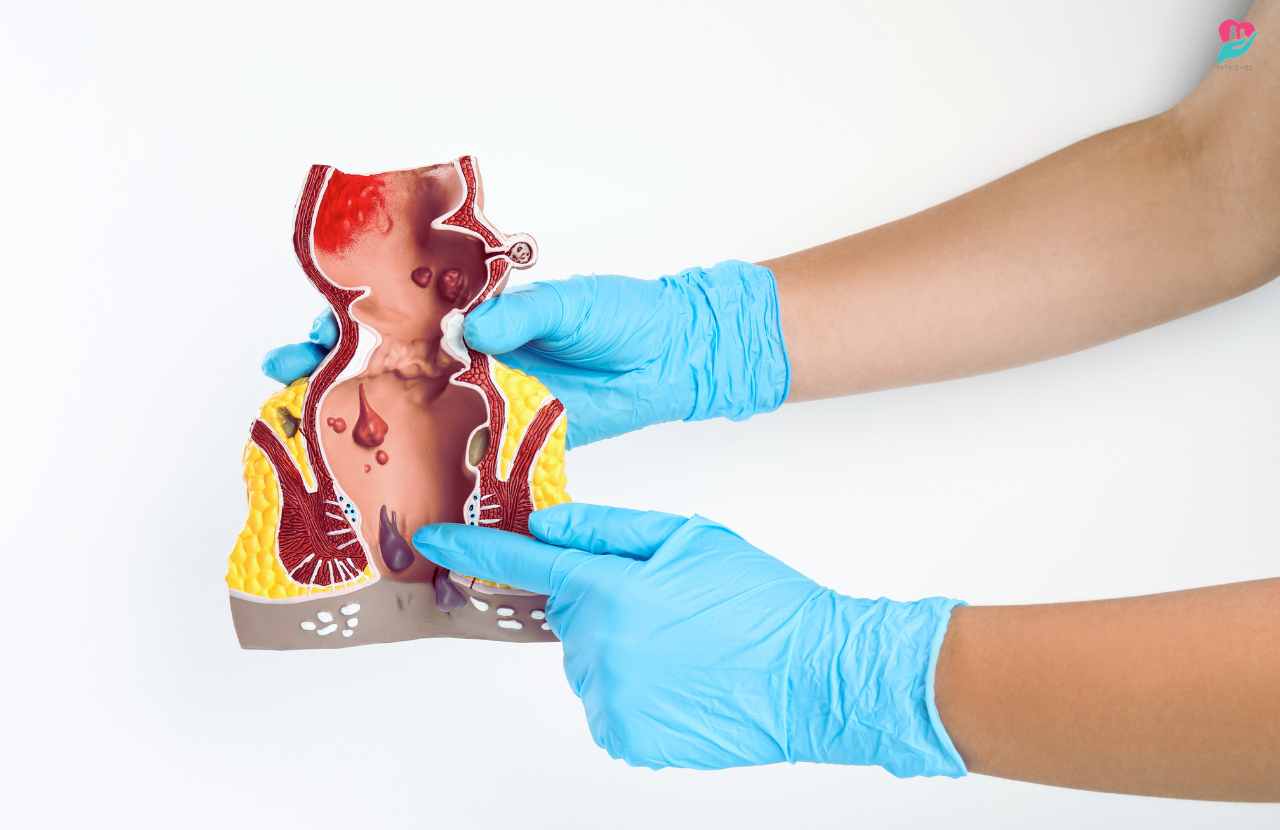Dealing with hemorrhoids can be an uncomfortable and distressing experience. These swollen and inflamed blood vessels in the rectal area can cause pain, itching, and even bleeding, affecting one’s daily life and overall well-being. While numerous remedies exist to alleviate the discomfort, one unconventional yet increasingly popular approach is Neosporin, a common over-the-counter ointment typically employed for minor cuts and wounds. This article will explore whether you can use Neosporin on hemorrhoids! As we venture into this fascinating realm of self-care, it’s crucial to remember that consulting a healthcare professional is always advised before attempting any new treatment for hemorrhoids or any other medical condition.
Can you use Neosporin on Hemorrhoids?
Neosporin is an over-the-counter topical antibiotic ointment commonly used to prevent infection in minor cuts, scrapes, and burns. While it can be effective for those purposes, it is not typically recommended for haemorrhoid use.
Hemorrhoids are swollen blood vessels in the rectum or anus caused by straining during bowel movements, chronic constipation, or other factors. They can be internal or external and may cause discomfort, itching, and bleeding. Using Neosporin on hemorrhoids might not be suitable for several reasons:
- Not designed for hemorrhoids: Neosporin is not specifically formulated to treat hemorrhoids or the delicate skin around the anus. It may not provide relief or address the underlying issues causing hemorrhoids.
- Allergic reactions: Some individuals may be sensitive or allergic to the ingredients in Neosporin, which could potentially worsen the condition or cause additional irritation.
- Potential harm to mucous membranes: The anal area is sensitive, and using certain substances not intended for mucous membrane application can lead to irritation or discomfort.
Can you use Neosporin after hemorrhoid surgery?
After hemorrhoid surgery, your doctor will likely provide specific instructions for wound care and post-operative care. Sometimes, they may recommend using over-the-counter ointments like Neosporin to help prevent infection and promote healing.
However, it’s crucial to follow your doctor’s advice and not self-medicate without their approval. Some doctors may prefer different types of ointments or wound care products depending on the type of surgery performed and your individual health needs.
Can you use antibiotic ointment on hemorrhoids?
Using antibiotic ointment on hemorrhoids is generally not a standard or recommended treatment. Hemorrhoids are swollen and inflamed blood vessels in the anal and rectal area, and they are usually caused by increased pressure on the veins in the pelvic and rectal region.
Treatment for hemorrhoids typically involves lifestyle changes, such as increasing fiber intake, staying hydrated, and avoiding straining during bowel movements. Over-the-counter creams or ointments containing ingredients like hydrocortisone or witch hazel may temporarily relieve symptoms like itching and inflammation. However, these creams are not antibiotics.
If you suspect you have hemorrhoids or are experiencing symptoms, it is essential to seek medical advice. A healthcare professional can properly diagnose the condition and recommend appropriate treatments, including lifestyle changes, topical creams, or other medical interventions based on the severity of the hemorrhoids.
Remember, self-diagnosis and self-treatment may not always be effective and can sometimes lead to complications. Always consult with a healthcare professional for proper evaluation and guidance.
Can you use cortisone cream on hemorrhoids?
Cortisone cream is a topical medication containing corticosteroids with anti-inflammatory properties. It is commonly used to reduce itching, redness, and inflammation associated with various skin conditions, such as eczema, dermatitis, and insect bites.
For hemorrhoids, swollen and inflamed blood vessels in the anal area, cortisone cream may temporarily relieve itching and discomfort. However, it’s crucial to be cautious when using any medication in the anal region, as the skin there is sensitive and the area can be prone to infection.
Before using cortisone cream or any other over-the-counter medication on hemorrhoids, it is highly advisable to consult with a healthcare professional or a qualified pharmacist. They can evaluate your situation, advise on the appropriate treatment, and ensure there are no contraindications or potential risks associated with using cortisone cream.
Additionally, lifestyle changes, such as increasing dietary fiber, staying hydrated, and avoiding straining during bowel movements, can be beneficial in managing hemorrhoids. If the hemorrhoids are severe or persistent, seeking medical attention for proper evaluation and treatment is crucial.
Can you put bacitracin on hemorrhoids?
Bacitracin is an antibiotic ointment that prevents infection in minor cuts, scrapes, and burns. It is not typically recommended for use on hemorrhoids.
Hemorrhoids are swollen veins in the lower rectum or anus that can cause discomfort and bleeding. The treatment for hemorrhoids usually involves lifestyle changes, such as increasing fiber intake, staying hydrated, and avoiding straining during bowel movements.
Over-the-counter creams or ointments specifically designed for hemorrhoids, containing ingredients like hydrocortisone or witch hazel, may be used to relieve symptoms.
If you are experiencing hemorrhoid symptoms, it’s essential to consult a healthcare professional for proper diagnosis and treatment recommendations.
Final Words
In conclusion, while Neosporin is generally safe and effective for treating minor cuts, scrapes, and skin irritations, it is not specifically intended or recommended for haemorrhoid use. Hemorrhoids are swollen blood vessels in the anal and rectal area, and their treatment requires specific approaches, such as keeping the area clean and dry, using over-the-counter hemorrhoid creams or ointments, and adopting lifestyle changes to alleviate symptoms. It is essential to consult a healthcare professional for appropriate diagnosis and guidance on managing hemorrhoids to ensure proper care and relief from discomfort.

